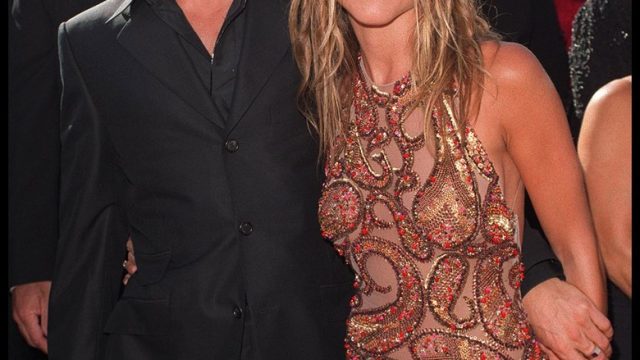Hello, my lovelies! How has June been treating you? Enjoying the summer, or are you injured and grouchy like me?
Anyways, here’s what I have from the past 7 days…
On the 14th, Mike Vanderbilt interviewed Jim Jarmusch for Consequence of Sound:
“From his first features, Jarmusch’s distinct style was present: laid-back, deadpan, comedic, and at times poetic. No matter the genre—be it his 1995 post-modern western, Dead Man, or his 2016 Stooges documentary, Gimmie Danger —Jarmusch’s touch can be felt.
That much remains true on his latest film,The Dead Don’t Die, a slacker zombie comedy with yet another all-star cast that includes Bill Murray, Adam Driver, and Tilda Swinton amongst many others.”
Meg Shields talked about how Vinny, of My Cousin Vinny, laughs in the face of imposter syndrome, over at Film School Rejects, on the 15th:
“When he wins the case, Vinny doesn’t stick around to blow raspberries. He splits. And it’s kind of bittersweet. He laughs in the face of imposter syndrome but at the end of the day, Vinny wants to do his job well. And that’s why he triumphs: he doesn’t take himself too seriously. And if you’re in on the joke, chances are you’ll make it through.”
Edward Helmore of The Guardian, discussed why Hollywood fell out of love with sex on the 16th:
“For decades, no big-box-office, adult-oriented Hollywood movie was apparently complete without a sex scene, from Don’t Look Now to Basic Instinct. Yet it appears that erotica is now dying out in mainstream cinema.”
On the 18th, Jason Siegel analyzed masculinity and the action hero through the film Last Action Hero, for Bright Wall/Dark Room:
“While the ‘80s action hero may have helped the American male restore his lost sense of power, it did so by setting up an unrealistic and problematic role model for boys, to whom R-rated action films were vigorously marketed. (When I was a kid, I watched a Rambo cartoon and played with Rambo action figures). In his self-reflexive action-comedy Last Action Hero, John McTiernan, director of both Predator and Die Hard, parodies the genre he injected with so much testosterone to examine the effects of action heroes on young men’s conceptions of their own manhood. At its heart, the movie is about the relationship between a fatherless adolescent boy and a father who lost his son, and the film’s metafictive framework, which blurs the line between its own diegetic world and the metadiegetic world of Jack Slater IV, is no mere gimmick.”
Michelle Ruiz, a girl after my own heart, discussed her nostalgia for 90s celebrity culture, for Vogue on the 18th:
“Sometimes ’90s nostalgia accounts remind me of things I forgot, or maybe I never knew at all—like Aniston flicking off the paparazzi (quoth one commenter: “Ross must have said they were on a break again”), or Jared Leto and Cameron Diaz making out in Paris in 1999, with him wearing a bucket hat. I grew up a faithful reader of The Star and National Enquirer, with issues splayed out on my grandma’s coffee table, but I was a junior in high school back then, probably too busy listening to Sixpence None the Richer’s ‘Kiss Me’ and reeling tearfully through a breakup with my older boyfriend to catch these momentous events. Plus, Instagram (and Twitter) didn’t exist back then—we were left to rely solely on tabloids, celebrity weeklies, and nightly viewings of Entertainment Tonight for updates. Some young millennials are finding out for the first time, via Instagram, that Pitt once dated Gwyneth Paltrow, and that they tooled around the West Village together in matching haircuts.”
Also on the 18th, Colin Fitzgerald talked about the private darkness in Blue Velvet in today’s oversharing culture over at Pop Matters:
“The story has the narrative beats of a noir and the contours of a psychological thriller, but the film truly has a spirit of its own that isn’t captured by the structural framework surrounding it. Most call it ‘nostalgic’ or ‘dreamlike’, and for good reason. Set in Lumberton, North Carolina, the America of Blue Velvet is one out of time, rich with anachronisms like classic cars, vintage swing dresses, and early rock ‘n’ roll. The surface of its world exists in the imagination of anyone who has bothered to conjure an idea of the American Dream since the end of the Second World War.”
Finally, Dawn Foster, a comrade at Jacobin, talked about how Ulysses “truthers” have opened up a wider debate about cultural gatekeeping, on the 19th:
“The Ulysses truthers’ fervor is a cipher for their wider view on politics. The anger aimed at the Labour leader is a form of cultural gatekeeping: literature isn’t an art form open to all, a transformative experience that should be universal, but functions merely as a series of cultural markers that confer value upon an individual. Libraries are venerated in theory but not practice by a facet of middle-class Britain, not because access to knowledge should not depend on wealth, but because of the self-congratulatory associations of describing yourself as a reader.”
Enjoy!

